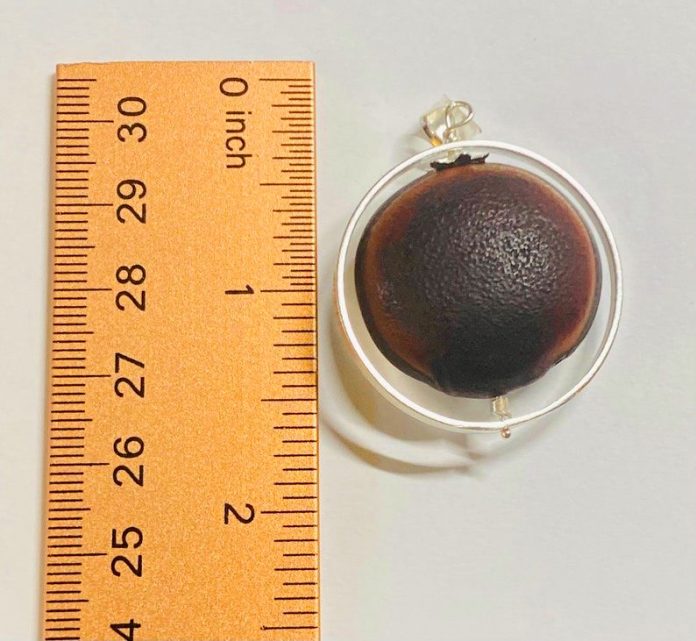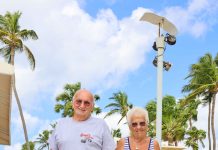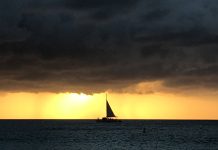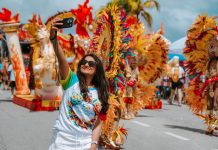Uncover Aruba`s insights through Etnia Nativa
Destination values, native heritage, and cultural identity are what we advocate for in our own particular way of safeguarding all reasons to love Aruba. Etnia Nativa, through this cultural blog, “Island-Insight,” shares native cultural awareness, educates, and safeguards native heritage. It is how we encourage you to experiment with an island-keeper state of mind during your stay.
To fulfill one more of our purposes in this episode, we introduce you to a fetish “seed,” locally known as “djucu,” and if during your stay you get one, you will be very lucky!
“Djucu,” scientific name Mucuna urens, is a large vine or liana vine native to tropical Central and South America. Found from Panama to Peru, Ecuador, Bolivia, and Brazil, it grows in forests and at altitudes up to 1,800 m (6,000 ft.).
Common names by which this plant is known include horse eye bean, bull’s eye bean, and “djucu” in our native Papiamento language. It is not a plant that you can find in Aruba, but you can get its beautiful and valuable seeds by searching carefully among the pieces of driftwood or sticks that the ocean currents bring to the north coast of the island. Finding one may be the luckiest day of your life, since for the natives, finding a ‘Djucu’ means good luck. By the time you get a “djucu,” you will have obtained your favorite Aruban amulet, and you can even always carry it with you on a chain like a necklace. The Djucu seed was widely used by the natives of Central America and the Caribbean and is still used today to make a variety of ornaments or souvenirs.
Mucuna urens, or “djucu”, was also widely used in traditional medicine. A tincture made from the powder of its seeds macerated in alcohol is a soothing remedy used against hemorrhoids, especially in those prone to bleeding. There are those who attribute wonderful but superstitious properties to the seeds, claiming that simply carrying them in their pockets or purses will give them spiritual powers and prevent someone from having hemorrhoids.
The truth is that drinking water can be obtained from the fleshy stems of the plant, and the fibers of the stem are also used to make strong and very durable ropes.
In Costa Rica, they use the stems and seeds of the plant, affirming that the resulting liquid is very effective as a diuretic. While in other places they have the custom of grinding the seeds with sugar to make a drink known as “horchata”, using a decoction of sesame leaves and flowers instead of water, and using it as an aperitif and something purgative at the same time. It is also believed that the stinging hairs that grow on the pods are effective against intestinal worms since, after ingesting the “drink”, they are expelled alive. But be careful, since these hairs are irritating to the skin and cause intense itching, as well as redness and the formation of small pustules shortly after contact, since they contain an active chemical known as mucuna, a proteolytic enzyme.
What is surprising is that in recent years, scientific studies have found that an extract of the seeds given to male Guinea pigs in low doses causes sperm degeneration, raising the possibility that the plant could be used as a male antifertility agent.
Intrigued by Aruba`s origins and its cultural heritage? Then we encourage you to do something outside of the tourist grid. Become one of the exclusive visitors of Etnia Nativa, a private residential encounter set up, where you will be able to touch and be touched by authentic Aruba heritage, a spectacle of native art, archaic as well as archaeological artifacts, lithic tools, colonial furniture, and other items of island’s bygone era. Get inside a recycled environment full of peace, relaxation knowledge, and information.
Etnia Nativa is, since 1994, the home of Anthony, our acclaimed columnist, artist craftsman and island Piache who guides and lectures you through his resplendent collection. Etnia Nativa is the only place that recreates and introduces you to an authentic glimpse into Aruba’s native cultural heritage and its colonial footprint. Something completely different for a change—a contemporary Native Aruba experience!
Appointment is required + 297 592 2702 or etnianativa03@gmail.co
















